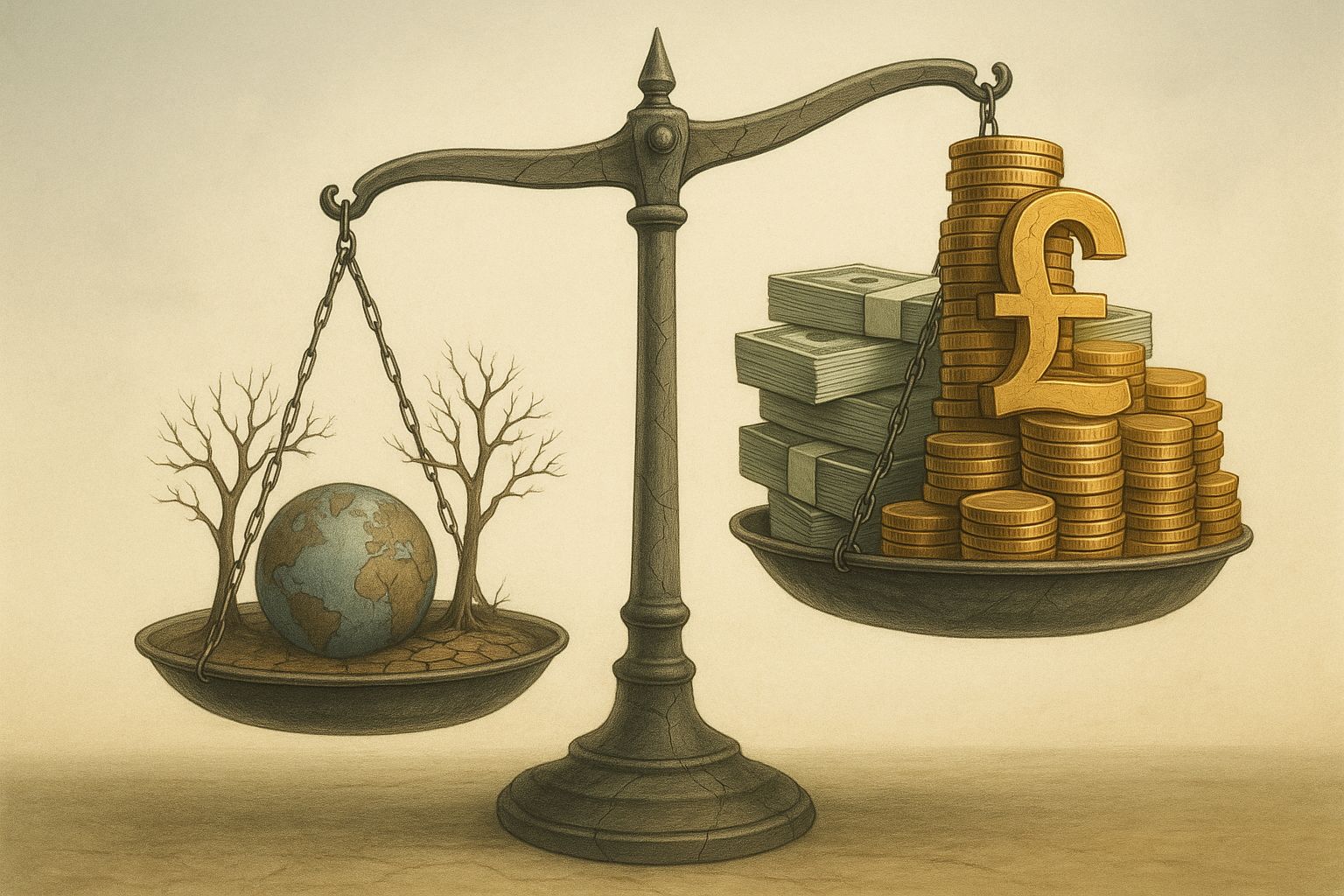A broken system that rewards some while leaving others behind
Water is essential. Yet in modern Britain, its management increasingly resembles a luxury service rather than a basic human right. The recent Independent Water Commission report pulled no punches. It laid bare a system in which consumers bear the financial brunt, private investors enjoy generous dividends, and the most vulnerable communities pay the highest price in both economic and environmental terms.
This is not just about leaky pipes or sewage overflows. It is about who controls the flow of water, who benefits from it, and who suffers the consequences when the system fails. At the heart of the Commission’s analysis is a stark conclusion: the current model is deeply inequitable.

The legacy of privatisation: profits over people?
Since the privatisation of England and Wales’ water companies in 1989, nearly £85 billion has been paid out to shareholders. Meanwhile, infrastructure investment has not kept pace with the needs of a growing population and a changing climate. Water bills have risen steadily, and public trust has plummeted.
The Commission found that while some households now pay upwards of £500 annually, water companies have continued to distribute profits even as pollution incidents rise and reservoir levels remain under strain. Critics argue that the system has been skewed to reward financial engineering over long-term environmental stewardship.
In the words of one commissioner: “The current model allows profits to be extracted while the liabilities, social, environmental, and infrastructural, remain with the public.”
Unequal impacts: postcode lotteries and household pain
Water justice is not just about economics. It is also about geography and class. Rural communities with ageing infrastructure often experience more frequent service interruptions. Urban neighbourhoods, particularly those with lower-income or minority populations, are more likely to face the dual challenges of overflows and water quality breaches.
Recent data shows a correlation between lower income areas and higher incidents of unplanned water outages. Meanwhile, developers in affluent areas often benefit from new infrastructure subsidies. Existing residents elsewhere are left with inadequate drainage and increased flood risk.
For renters and those in temporary accommodation, the problem is often even more opaque. With water charges frequently bundled into rental agreements or handled by landlords, many lack transparency or recourse when service falls short.
The business of water poverty
Water poverty, defined as when a household spends more than 5 percent of its income on water and sewerage, affects nearly one in ten homes in some regions of England. Yet public awareness remains limited.
Part of the issue is structural. Ofwat’s price controls, designed to limit bill increases, do not necessarily protect the poorest. Universal pricing structures fail to account for income disparities or vulnerability. Unlike the energy sector, there is no Warm Home Discount equivalent for water.
Some water companies have introduced social tariffs or hardship funds. However, coverage is inconsistent and not always well-publicised. The Commission called for a mandatory national scheme, funded by a levy on profits, to support low-income households and ensure that no one is cut off from essential water services.
Accountability in a complex web
A recurring theme in the Commission’s findings is the lack of clear accountability. Consumers are subject to opaque billing structures, investor-driven priorities, and fragmented regulatory oversight. Ofwat oversees pricing and financial resilience. The Environment Agency monitors pollution. Local authorities have responsibilities for drainage and planning. Yet no single body is responsible for ensuring that the system is just.
This complexity often leaves the public feeling powerless. When water is undrinkable, bills surge, or sewage flows into rivers, it is not always clear who is to blame or how to demand change.
Calls are growing for a unified water justice framework. This would establish minimum standards for affordability, transparency, and environmental equity. It would also enshrine access to clean water as a right, not a commodity.

Time to revalue water?
One of the Commission’s boldest proposals is to rethink how we value water. Rather than pricing based on volume alone, it suggests a model that accounts for water’s social and environmental value. This would include incentives for conservation, penalties for pollution, and rewards for companies that invest in community resilience.
Such a shift would bring the water sector into alignment with the principles of ESG governance. It would also create space for community-led initiatives, public-public partnerships, and catchment-based thinking.
In Scotland, where water remains publicly owned, there is growing interest in participatory budgeting and co-designed infrastructure. These approaches could offer inspiration for reform in England and Wales.
Who speaks for the public?
Perhaps the most damning conclusion of all is that the public has been largely excluded from decision-making. Corporate boards and regulatory consultations rarely include community voices. When crises occur, whether sewage on beaches or hosepipe bans, the conversation too often takes place between ministers and markets, not citizens and stakeholders.
The Commission recommends a new “Water Assembly” model, bringing together consumers, campaigners, regulators, and scientists to shape long-term water policy. If adopted, it would represent a seismic shift in how water governance is approached in Britain.
A moment for reckoning. And for change
Water justice is not a fringe concern. It touches every home, every river, and every field. As climate shocks intensify and infrastructure creaks under pressure, the price of inaction will only rise.
The Commission’s message is clear. Britain’s water system must serve the many, not the few. That means putting fairness at the heart of pricing, decision-making, and investment. It means ensuring no one is left behind, whether in a flooded street, a dry field, or a flat without running water.
Real reform will take courage. But without it, the question will no longer be who pays, who profits, or who suffers. It will be whether the system can survive at all.



